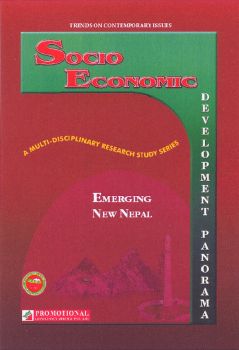Nepali Media Institutions: Transition Towards Democracy
Keywords:
Press Council Nepal, PCN, Media categorization, Media system, Code of conduct, Professionals, Morality, Right to information, Media monitoring, Media freedomAbstract
The article explores how democratic value based monitoring media institutions and the Press Council (PC) can play a more proactive assertive role towards galvanizing its resources for creation of a people centered media policy. In a transition phase Nepal aiming at acceleration of a double digit growth, business, banks, financial institutions, academic sectors and common populace need to carve out an information led knowledge based industries sanctified by the media. Democratic media system oversees truth, authentic, and impartiality in message dissimination as its cornerstone. It advocates for a more law based media climate, wherein the state machinery blends within the parameters of the dissemination of accurate, balanced, and credible news and opinion.
However, media institutions both from the government or the private sector as Kantipur Publication, Image Channel, the Himalayan, Nepal 1, or all unaccountable moffusil media can play an effective role by galvanizing the interests of the media industry and the public as its prima facie requirements for a healthy and a vibrant growth of the media system. Otherwise, media industry will turn into a more 'arajak' state. The analysis of the research points out towards it.
Actually Nepali media suffers from an appointment not dictated by meritocracy, but by budgetary, bureaucratic redtapism, monopolization, and programs constriction. Absence of creativeness and an unwillingness to engineer a democratic discourse on the public sentiment only dampens the spirit of the people.
However, the evaluation categorization of the media system into A, B, C, and D is driven with flaw. It is based more along quantity wise circulation, and it is partial in nature. The emphasis upon evaluation which endeavors for qualitative increase without putting recourse to any form of bias, pressurization or a dependence syndrome only bent upon receiving benefits from the government purse and privilege does not help to strengthen the media.
Thus the justification for this study underlines the reorganizations on the importance of individual liberty, freedom to secure, report the truth, etc. by forging a healthy, balanced system of media law practices in Nepal for maintenance of the vitality of the society well being as the primary cause for sustenance of democracy.
It will help to protect the producer of information, and punish those who do not adhere to it. However, only when the implementing organ is strong will it be able to command the lawful state of media interrelations. Unless, the stakeholders realize that information is power and only when a truthful, unbiased and a democratic media system, whereby the least marginalized tire of the society also get the opportunity to be a part and partial of the mainstream media society otherwise the freedom of information could still be in a lame duck position.
This is a significant step forward for disseminating more information, and engage oneself towards more discourse practices by building an open interactive objective information laden climate that answers to the call of a more robust, heterogeneous audience. It revolves around upon how media institutions and Press Council Nepal (PCN) can function in accordance to the wills of the people without being partisanship or prejudiced, adopt laws and regulations that make it more compatible with the practices of other civilized countries. Media ought to function positively to make it a more democratic institution, in tune with the grassroots realities. It needs to adopt a policy of accountability, balanced and credible facilitating organ principle for integrative development of the society.
Media ethical monitoring institutions instead of merely engaging themselves in cut and paste of the various practices prevalent in the world actually need to outweigh the pros and cons of the policy, and do its utter best to strengthen the institution by reciprocal building up its own unique democratic institutions. There is stiff competitiveness amongst the media. Thus, hurling accusations and degrading the media system is not a healthy sign which harbingers a peaceful climate for its growth.
The study has attempted to dissect upon how the actual needs of the society when adopted in a scientifically manner will be helpful to foster into a more pragmatic and a justice driven functional democratic strengthening of the media system. Only then, media can be glued as the chariot driver ushering into media freedom.
Keywords: Press Council Nepal, PCN, media categorization, media system, code of conduct, professionals, morality, right to information, media monitoring, media freedom
Socio Economic Development Panorama, Vol. 1, No. 3(2008) pp. 97-118

